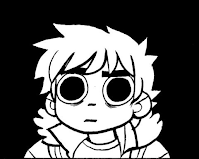Ben: Let me kick the conversation off with some history and dry facts. Bones of Contention grew out of our discussions about the current state of review culture in the classical/OSR/Post-OSR space. We were all dissatisfied with the limited review culture, which consisted mainly of boosting products, and a couple of long running single authored critical review blogs and youtube channels. Ava suggested that any real alternative would need to be a multi-authored collaborative review site perhaps modeled on video game review sites. We debated the practical complications of reviewing in a small scene where everybody knew everybody else, how to handle conflicts of interest, how to select products to review, whether to require playtesting for all products to be reviewed, and the tone we wanted to maintain (critical where merited but respectful). We had some ideas we set aside like making all reviews anonymous and doing video reviews. We hit eventually on our principles, outlined here.
So Bones of Contention rose from the dead on June 14th of 2021. In our 29 weeks of ghastly toil before year’s end, we managed to publish 28 posts. 1 was our inaugural post. The remaining 27 were review posts. 20 of the reviews were by single authors in one of our established review series by regular contributors. 2 of the reviews were by guest authors in the Grave Trespass series. The remaining 6 reviews were multi-authored: 1 in the Rashomon series of multi-perspective reviews, 1 in the Folie a Deux series of dialogues, and 3 of them a series of shorter capsule reviews by multiple authors in the Cryptic Signals series. In our reviews, we covered 27 adventures, 6 games, and 4 supplements. There was a mix of old (10) and new (27) products.
Our most viewed post, after our inaugural post, was Zedeck’s review of Kriegmesser in his (P)late Mail series, followed by Gus’s review of the Caverns of Thracia in his Spectral Interrogatories series, followed by our very first review, the Isle of the Plangent Mage in third place. This confirms, by the way, that there’s an appetite for reviews of both old and new products. It feels to me like we had a good ratio (nearly 3:1) of new to old, with an appropriate tilt towards newer products that may not have received as much attention yet.
Our pace of publishing reviews was decent if not ideal. We began posting once a week. In a moment of early hubris we briefly increased to twice a week, only to discover that we needed to dial it back. We closed out the year posting every other week, which is our plan for the moment, until we build up a backlog sufficient to increase the pace once again to weekly reviews. To maintain our momentum, we have increased the number of contributors. Our skeleton crew started out with 7 regular contributors, each with their own review series, and grew to 10, including the most recent addition, Ty, who slipped into the graveyard with a review of Death in Space right before the year’s end. We are continuing our recruitment of guest reviewers, with first review of 2022 by Warren D and others in the works at the moment.
This diversity of perspectives was part of the rationale for Bones of Contention. Given the fact that our skeleton crew is all volunteer, and many of us are already stretched to capacity as ttrpg authors, we have tried to make a virtue of necessity. Now that the facts and figures are out of the way, I guess I’ll start by asking the rest of the skeleton crew what they think is working well on the blog, and what they’d like to see us do more of or differently in the future. Let’s start with you Gus.
Gus: Bones had a good ½ year, the reviews offer variety, and variation without paying a cost in quality. While each writer has brought their own style and concern to their Bones reviews, they all strike me as far more nuanced and thoughtful then many older blog based reviews by fans or foes of particular products and designers. While I suspect the economy and size of the RPG industry will mean that a healthy culture of critique is unlikely, it’s great to see efforts in that direction succeed.
Personally I intend to continue looking at the history and development of dungeons and the dungeon crawl, though given the length and limited number of reviews, I suspect Spectral Interrogatories will focus on more well known projects, especially those that are emblematic of certain key ideas in classic adventure design. My goal though isn't to burnish or tarnish the reputations of already well known designers, but instead to offer perspective of and criticism on well known works so that other, lesser designers, including myself, can learn from them. Planned reviews include a look at the revised Deep Carbon Observatory, discussing both its status as an exemplar and model for mid-OSR design as well as the many experimental aspects of the adventure. After DCO I suspect I’ll need to look at the outer edges of dungeon design, works from the indie and/or story game communities that seek to provide dungeon adventures and see what lessons can be learned from play styles that entirely reject procedural exploration.
For Bones I look forward to it’s continued expansion, with the addition of more reviewers from varied design backgrounds, both out of an interest in seeing how this cross-pollination of design ideas helps provide insight and inspiration for the contributors and readers own projects and because the tabletop RPG community is too small for contentious disputes over play style.
Nick: Discoverability is always an issue for artists. It hurts to pour your heart into something, even as you know nobody will ever see it because you lack the flair for marketing yourself. It was edifying to pull books right off the freshly printed line and give them a fair shake. I’m looking forward to doing more of it in the coming year.
WFS: I was an early latecomer to this project, but I was pretty happy with my first review in my Pedantic Wasteland series, which evaluated A Rasp of Sand in light of its stated roguelite goals. Not only was it an opportunity to shine a light on this neat adventure, but I got to address concepts like metagaming in a way that’s a bit more practical than a theory-post on my own blog. Due to constant juggling of other projects (for what am I if not a jester), my pace of solo reviews will probably be about two a year. One review I’ve had bouncing in my noggin has been the Red Hand of Doom adventure, which I think illustrates several interesting trends in big budget adventure design. However, where this blog really shines are the more collective reviews. It plays to our strength as a group of game thinkers and tinkers that solo blogs aren’t able to do. So I really look forward to more reviews in the Rashomon, Folie a Deux and Cryptic Signals series in 2022 and beyond. For the Cryptic Signals in particular, I hope these become more tightly focused around either genres of games, particular authors or adventure anthologies.
Anne: There are a few things that really excite me about the multi-author format Bones has going right now. First, several of us have clear agendas in terms of our planned reviews. Gus is mostly looking at famous older adventures. Nick is mostly looking at new works that he picks because he knows nothing about the authors. I also like the distinctive visual style of the different posts. Each review looks like a page torn from the author’s home blog and pasted into our scrapbook - especially for those of us with a really distinctive formatting style, like Gus and WFS. And finally, of course, having multiple authors means that we can work together, and write more and better than we could individually.
My agenda isn’t quite so straightforward, but I hope that pursuing it for another year will turn up more insights about how to write certain kinds of adventures well. My goals for my writing are to look closely at the important moving parts of the thing I’m reviewing, and to understand both what they’re trying to achieve and how well they actually accomplish it. I hope that whether you agree with me or think I’m wrong every time, that what I say is detailed enough and clear enough that you’ll know enough about the thing to form an opinion of your own.
For next year, I’m going to try to write more Cryptic Signals entries. There are some interesting small projects out there that could be well-served by short reviews. I might also be able to do something Ben did early on, and pair a couple of related items in a single solo review. I’ve agreed to something like three Folie a Deux team-ups with some other skeleton crew members, and I want to get at least one or two of those out this year. It’s also my personal goal to recruit at least one guest blogger to write a Grave Trespass. I’ve asked a couple of people I know well who I think would do a good job, but so far I’ve yet to successfully bring someone in. Ava is the real champion on that front, since the people she invites end up becoming regular columnists. A final goal is to have at least one “book club” article where some of us read a book that might interest gamers, but that isn’t a game book specifically - something like The Elusive Shift or Finite and Infinite Games. This is probably my least likely goal since, as others have already noted, we’re all busy with other projects, so trying to put together an actual book club is kind of a big ask.
* * *
Dan: The collaborative aspect of this whole endeavor has been my favorite part - both in the variety of voices and keeping things rolling without folks getting burned out. For the future I definitely want to run more (much easier to write a better review that way), and I hope we’re able to do more Rashomon reviews - it’s a fantastic way of using our format to our advantage.
Ben: You know, I think I agree with you all that the real strength of Bones has been the collaborative energy that is most on display in the more conversational reviews in the Folie a Deux, Rashomon, and Cryptic Signals series. It’s important to learn about the perspective of individual reviewers in their own series, since this gives us a sense of their pre-occupations and critical orientation. But it’s even better to see those individual perspectives come together in dialogue. For me, the high-point of the blog came in the recent Folie a Deux review of Luka Rejec’s Holy Mountain Shaker. It was especially interesting because Luka was trying to do something new and interesting in adventure design. Gus’ perspective on the centrality of space to procedural dungeon crawls gave him a critical perspective on the attempt, which contrasted with WFS’ interest in procedural and improvisational play that led to entirely different evaluation. In a sense the disagreement was really about what a dungeon is in the relevant sense. I found it absolutely fascinating. In the future I’d guess I’d like to build on that strength by experimenting with more of these dialogue style reviews. I think a book club would be a great idea as one new format we could experiment with. I also hope that as our critical perspectives become more developed, there will be a lot of cross-pollination between individual reviews, in the spirit of Ava’s Wheel of Evil review that brought together so many different threads of OSR relevant theory, including by Bones authors.
Ty: As the new kid on the block, I'm just happy I’m allowed to hang out with the cool kids and that I managed to sneak in under the wire at the end of 2021. In 10 years from now I can say "I've been with Bones since year 1, baby."
I'm eager to write more for the site, trying to alternate between larger read-throughs of entire books and smaller, more condensed reviews that pack a punch. The next review I'm working on is the Distant Lights supplement for Stars Without Number. Anne and Ben, I really love the idea that the two of you started, which was actually using the procedural creation tools in books to create something instead of just talking theoretically about them. I can't wait to give that a spin.
I'm also ready to bribe and beg all of you into doing a joint review, because I agree with what’s already been said: the collaborative reviews are a highlight of Bones and wonderful to read.
/ /
mv: another new contributor here. I personally had lot’s of fun reviewing the short and sweet Mouth Brood, and now aiming to go after bigger books. My sights are set on Suldokar’s Wake, a monumental review that will be exploring both the setting and system of the core set. My goal now is to get a couple of sessions going because I’m much better at getting a feel for a game from play.
Speaking of collaborations, I’d love to do a joint sci-fi module review with Ty, since our interests align in that area. Overall in 2022 I want to cover modern sci-fi and science fantasy game materials. Seeing how they explore the genre and push it into the (actual) future with new concepts and ideas. Stay tuned for some awesome Mundane Vacations.
Glad to be part of such a wonderful team and looking forward to the reviews of all types. My favorite thing was discovering perspectives from different cultures of play that I would otherwise have ignored. 11/10 would bones of contention again.
Ava: I’m immensely proud of what Bones of Contention has become over the past half year and even more excited to see where it goes. When I floated the initial concept I really didn’t expect anything to come of it, but major credit goes to Ben for organizing and making it a reality, as well as serving as basically our de facto Editor in Chief and handling all the day to day work of running the blog.
The inaugural review on this site emerged out of a four session playthrough of Isle of the Plangent Mage and by far my favourite aspect of Bones so far has been the opportunity to play and critically discuss different modules and systems with an absolutely dynamite crew of folks. I also love the evolution of the blog towards producing more critical analysis from its original conception of producing more product-oriented reviews; highlights of this style for me have been Gus’ Castle of Mirror’s review, Zedeck’s review of Kriegsmesser, and Marcia’s guest review of Pokemon Dungeon Crawler. I hope that this isn’t too lofty a comparison, but the energy on this blog reminds me of the early days of Kill Screen, which I remember reading at a time when no other places were consistently talking about videogames in a serious way. I think this evolution can even be seen in the two reviews I posted this year, with the first being much more concerned with the standard evaluation of usability and such while the second was a sort of analysis of the historical trends and styles contained within a particular module.
My hopes for the coming year ahead is, hopefully, to publish more than two reviews. I have a long backlog of adventures which I’ve actually played that I’d like to review, but more than that I had hoped for the focus of my series to be an investigation specifically into different systems and I’ve yet to review a single one. Of course, like everyone else has said I’m also really excited to do more collaborative reviews, as well as wrangling up as many guest writers I possibly can.
_______________________
So concludes our review of the state of the sepulcher. We hope to see you around these unholy precincts as our skeleton crew marches with the tireless resolve of the undying into a new year. If you have a favorite review from 2021 or something you'd like to see us do in 2022, join the conversation in the comments below!










Thank you all for your great reviews!
ReplyDeleteThank you, Simon! It's been nice to see that people are finding us and liking what they're seeing.
DeleteMy favorite stuff was when you guys would play an adventure together and then talk about it. I also loved the Filling in the Blanks review where a small area of hexes was generated using the book, along side the review. Great job to everyone, I love this blog.
ReplyDeleteI enjoy this blog as a way to hear about new material for games, and to get a grasp on that material. More reviews, especially of the niche stuff, is always welcome!
ReplyDelete